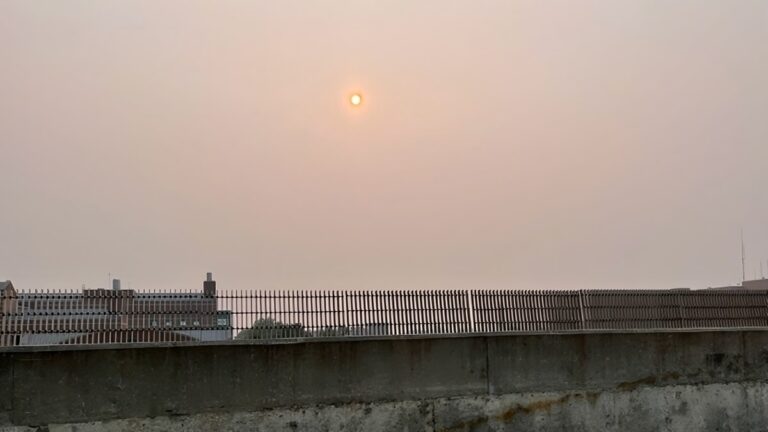CHAMPAIGN – Researchers at the University of Illinois found that wildfire smoke can have a significant impact on the labor market – causing both short and long-term effects.
Smoke from more than 500 wildfires burning in Canada have caused dangerous levels in air quality in the midwest and one climate expert says it will only get worse.
“We’ve seen wildfires before in Canada, but mostly in the West, and now we’re starting to see them in the East,” said Don Wuebbles, climate expert and professor emeritus at the University of Illinois.
He said he wouldn’t be surprised if the Midwest saw more bad air quality from wildfires moving forward.
“If the wind patterns are just right, then that drives that pollution down in the United States and can affect us in the Midwest,”said Wuebbles.
Mark Borgschulte is one of the researchers and co-author of the study exploring the effects of wildfire smoke.
“These bad days of air quality are reducing employment,” said Borgschulte.
He said that most economists believe that effects of wildfire smoke on the economy primarily work through two channels: health effects and avoidance behavior. Borgschulte said that wildfire smoke contains pollutants that can cause allergies or impact the health of individuals exposed to the smoke. He said due to smoke individuals will avoid going to work or going to the store – potentially impacting employment and revenue.
“Two percent of national income every year is lost to wildfire smoke,” said Borgschulte.
The study explores a third channel: that the two of those combined “generate lasting complications,” but these impacts are measured on average bad air quality.
“The events that were happening in the last month are something like five to 10 times worse than the average bad day that we see in our data,” said Borgschulte.
He says these events were unprecedented for the data they sought out to explore – given their magnitude.
“We’re pretty confident that these are pretty bad events. But at the same time, I’m reluctant to, you know, multiply things by 10,” said Borgschulte.
Wuebbles said that these kinds of wildfires will only get more common and more severe as the climate continues to warm.
“What do we expect for the future?” said Wuebbles. “We’re going to see even more wildfires and bigger wildfires. So, this will become a standard issue of concern.”
Borgschulte said that the impact of wildfires on the labor market is sometimes overlooked and that increasing intensity should divert people to recognize its impact.
“One of the things that I think is one of the primary findings in our paper is that the effects on the labor market seem to be as important as the mortality effects,” said Borgschulte.

